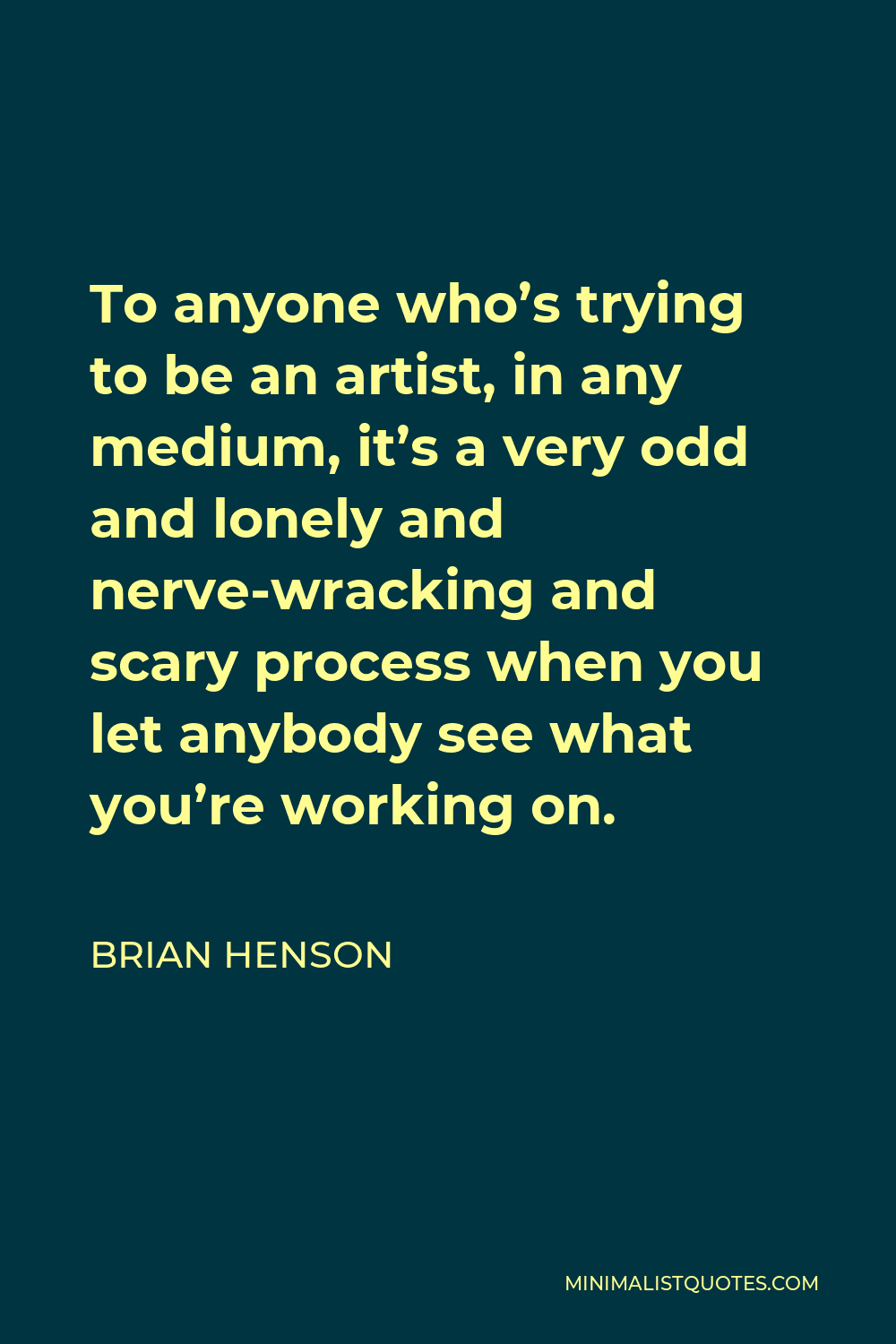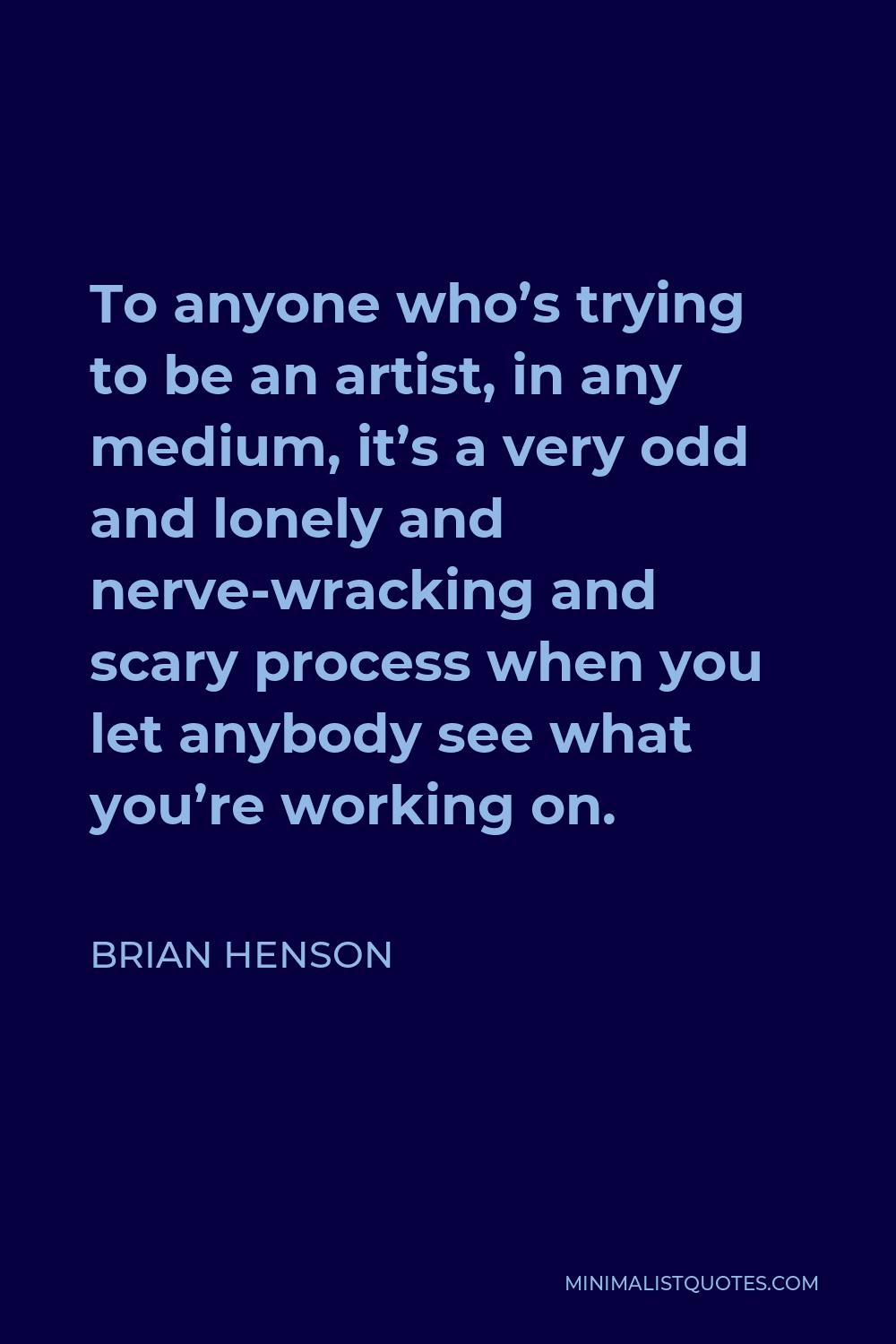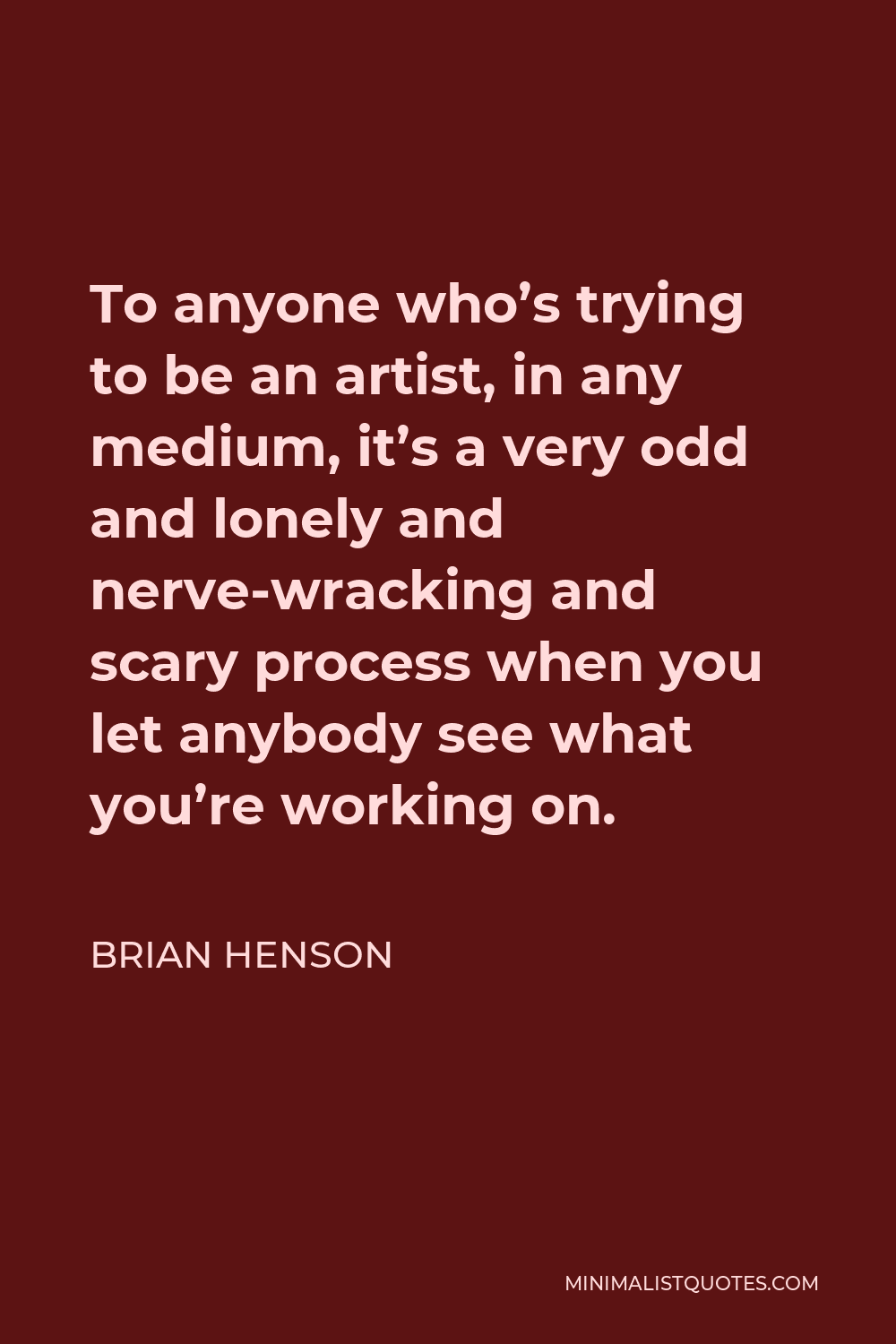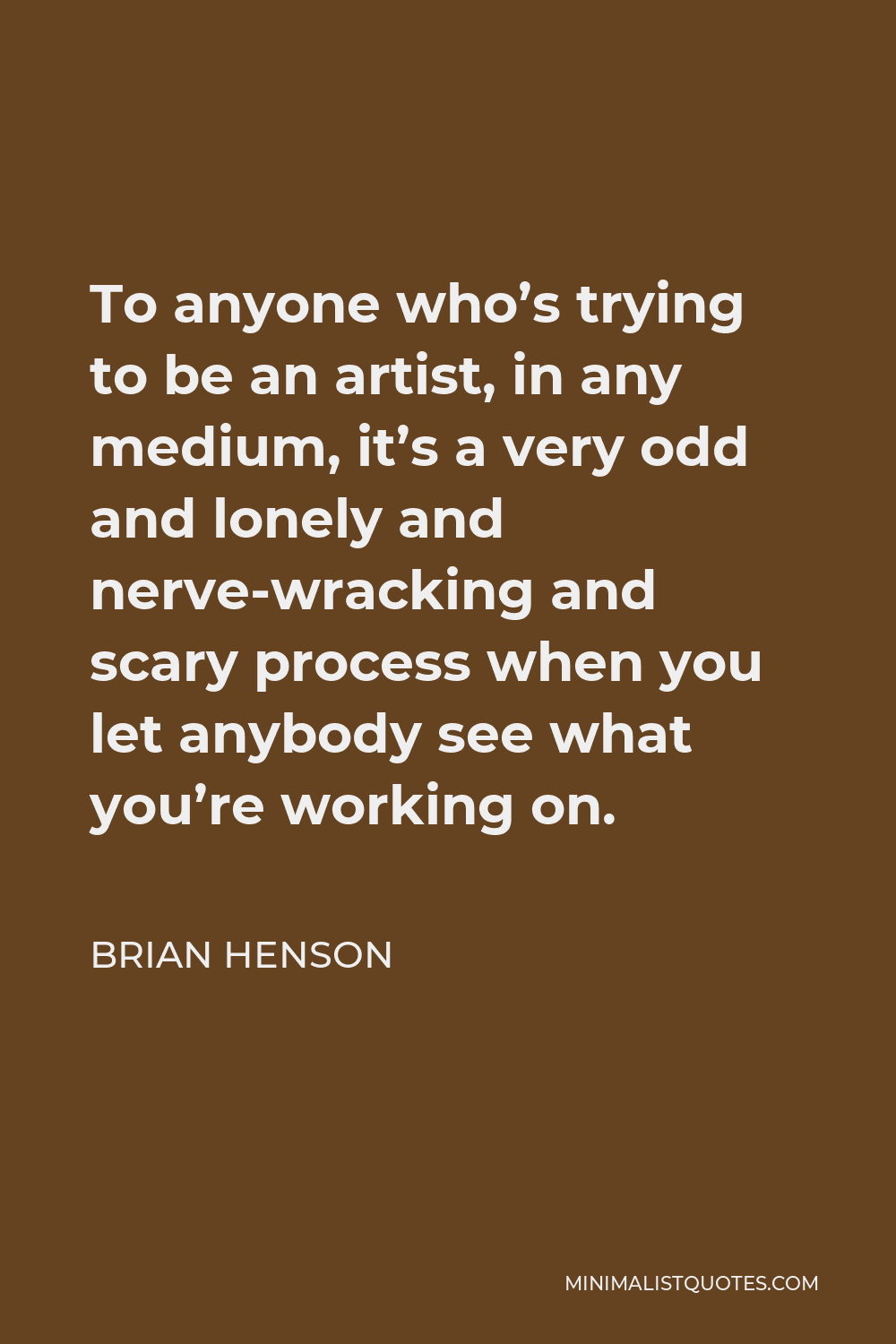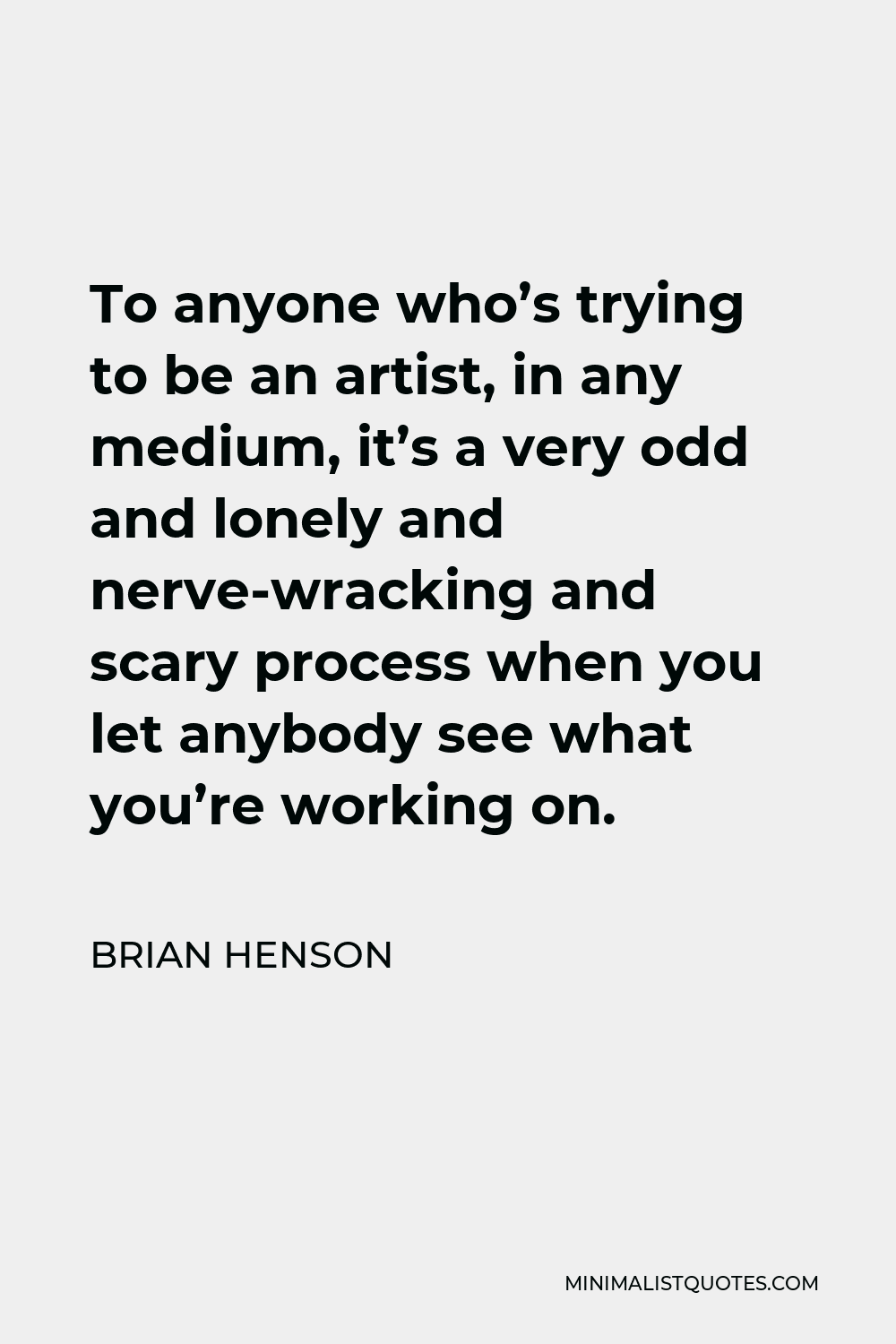Where does a character come from? Because a character, at the end of the day, a character will be the combination of the writing of the character, the voicing of the character, the personality of the character, and what the character looks like.
BRIAN HENSONTo anyone who’s trying to be an artist, in any medium, it’s a very odd and lonely and nerve-wracking and scary process when you let anybody see what you’re working on.
More Brian Henson Quotes
-





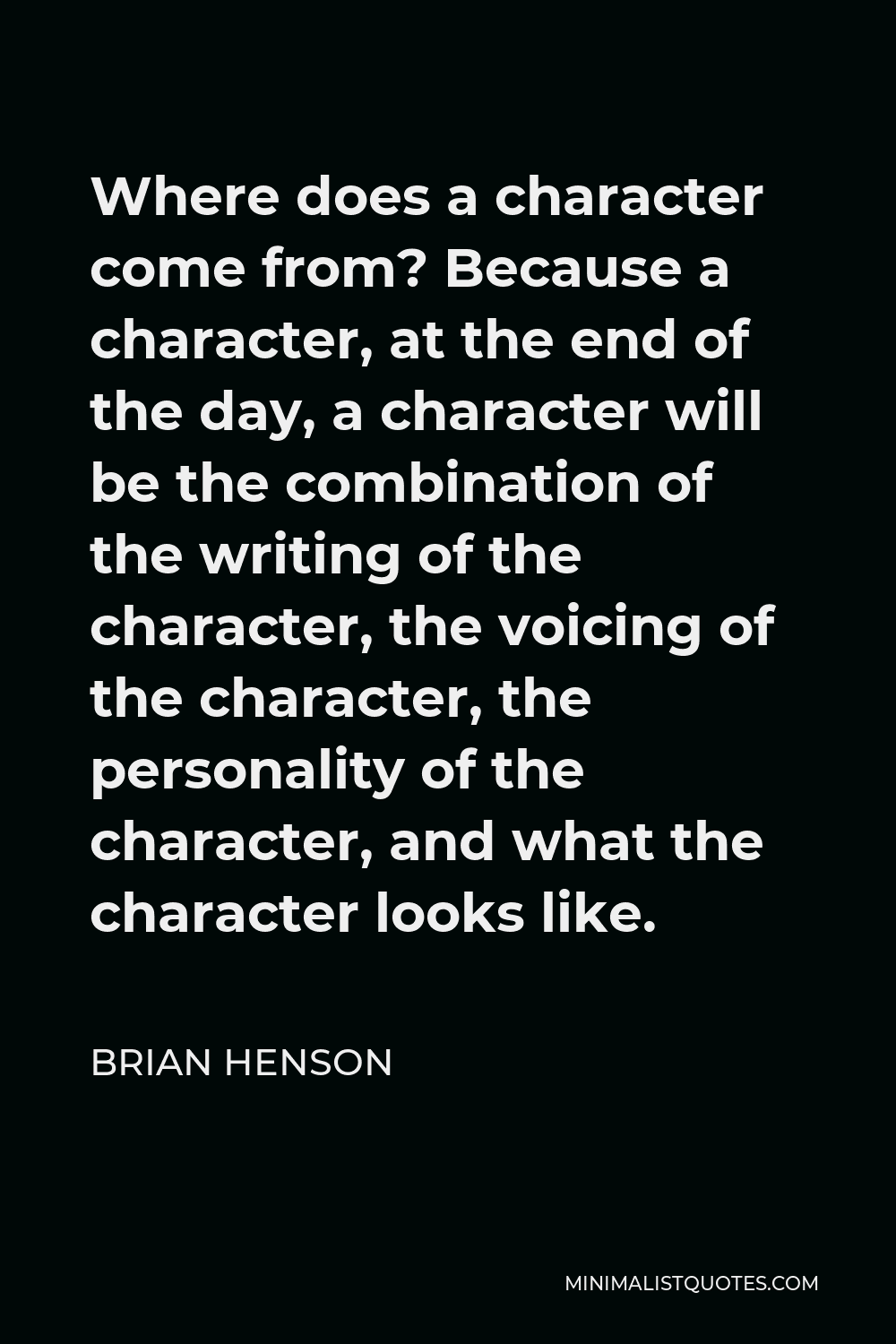
-





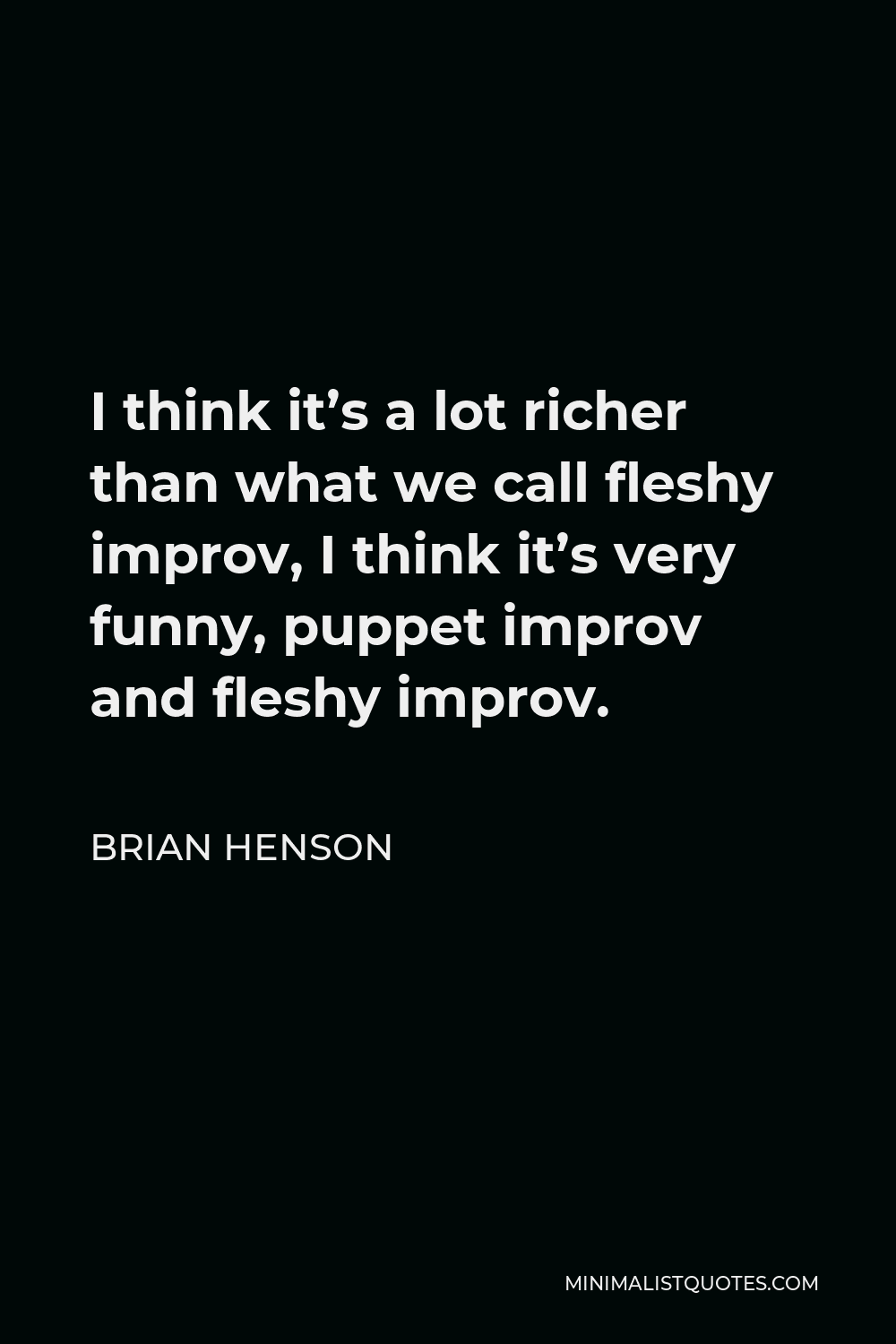
I think it’s a lot richer than what we call fleshy improv, I think it’s very funny, puppet improv and fleshy improv.
BRIAN HENSON -





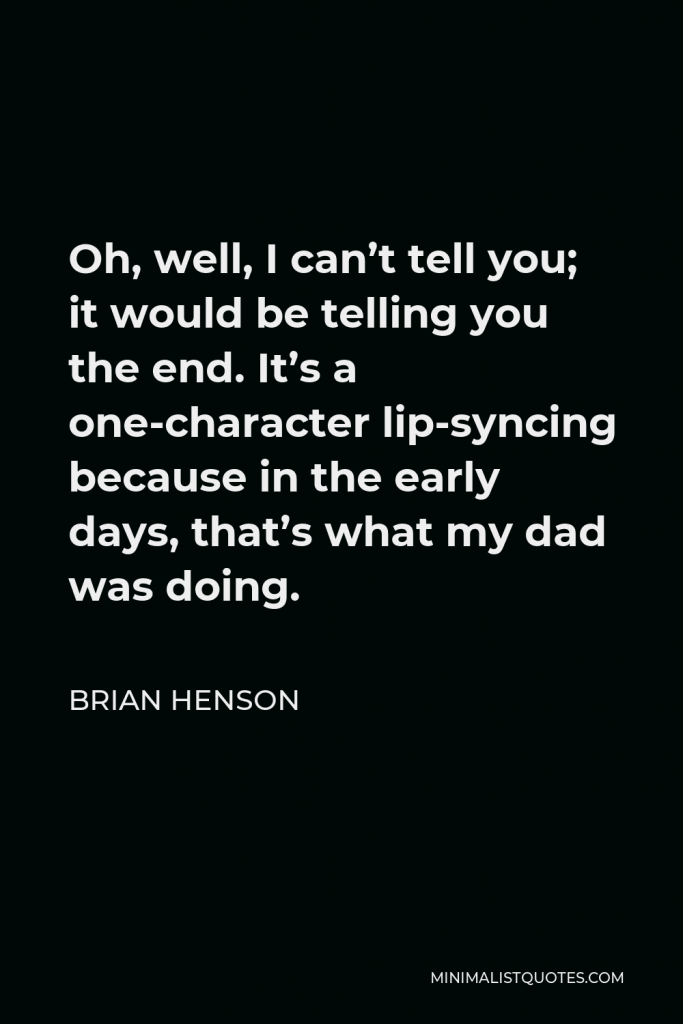

Oh, well, I can’t tell you; it would be telling you the end. It’s a one-character lip-syncing because in the early days, that’s what my dad was doing.
BRIAN HENSON -





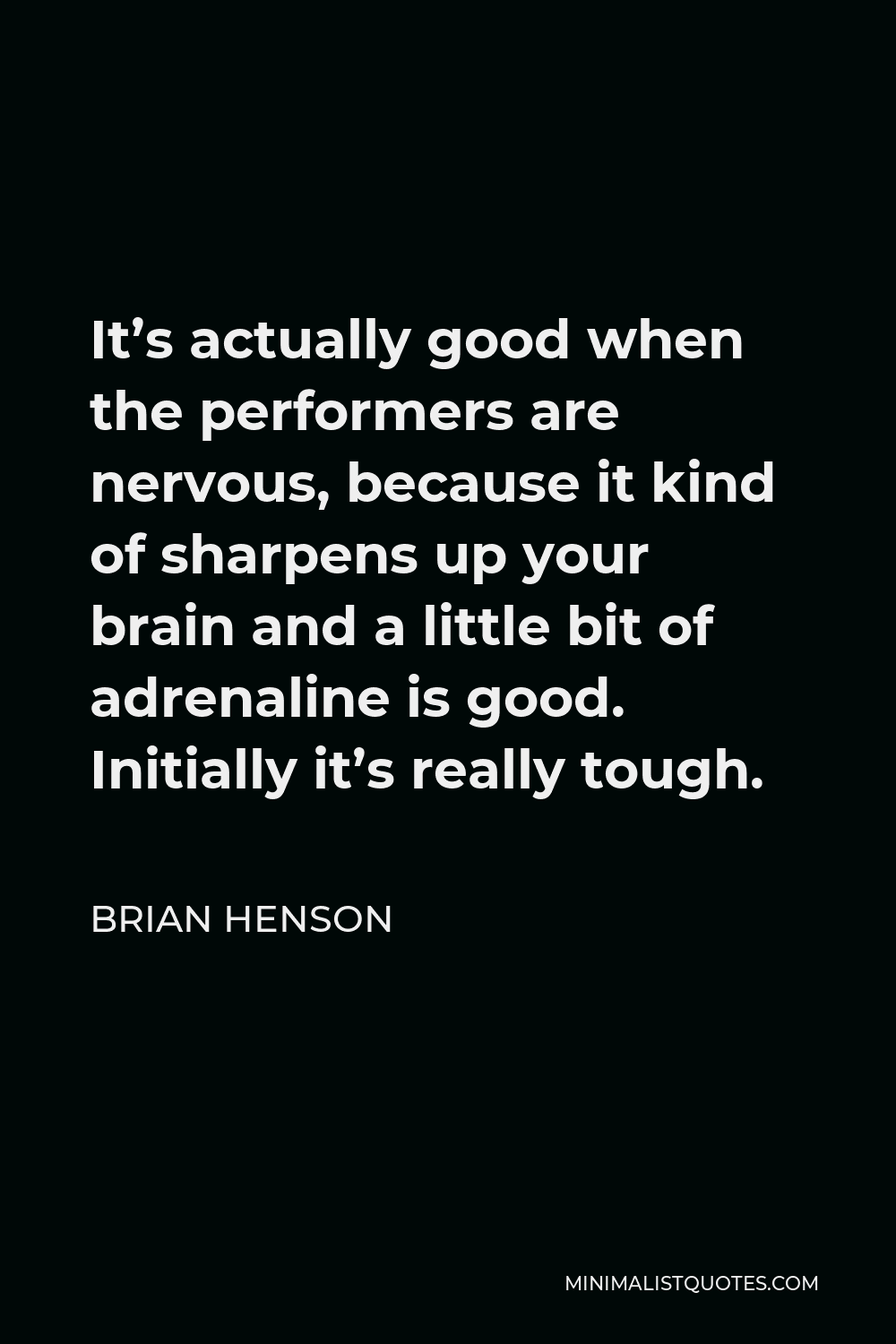
It’s actually good when the performers are nervous, because it kind of sharpens up your brain and a little bit of adrenaline is good. Initially it’s really tough.
BRIAN HENSON -





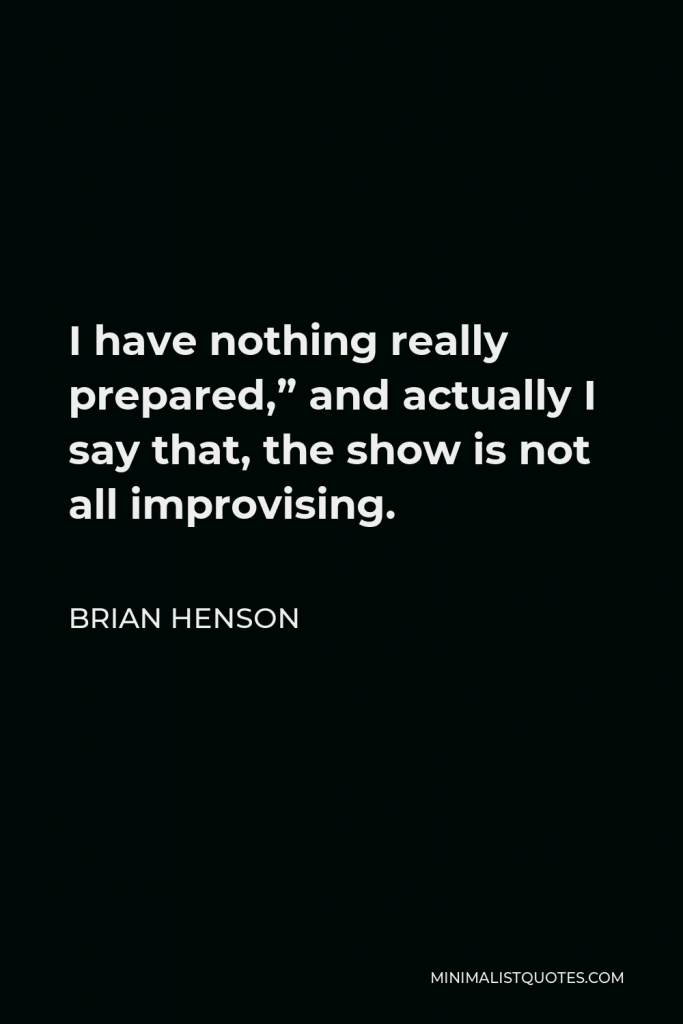

I have nothing really prepared,” and actually I say that, the show is not all improvising.
BRIAN HENSON -





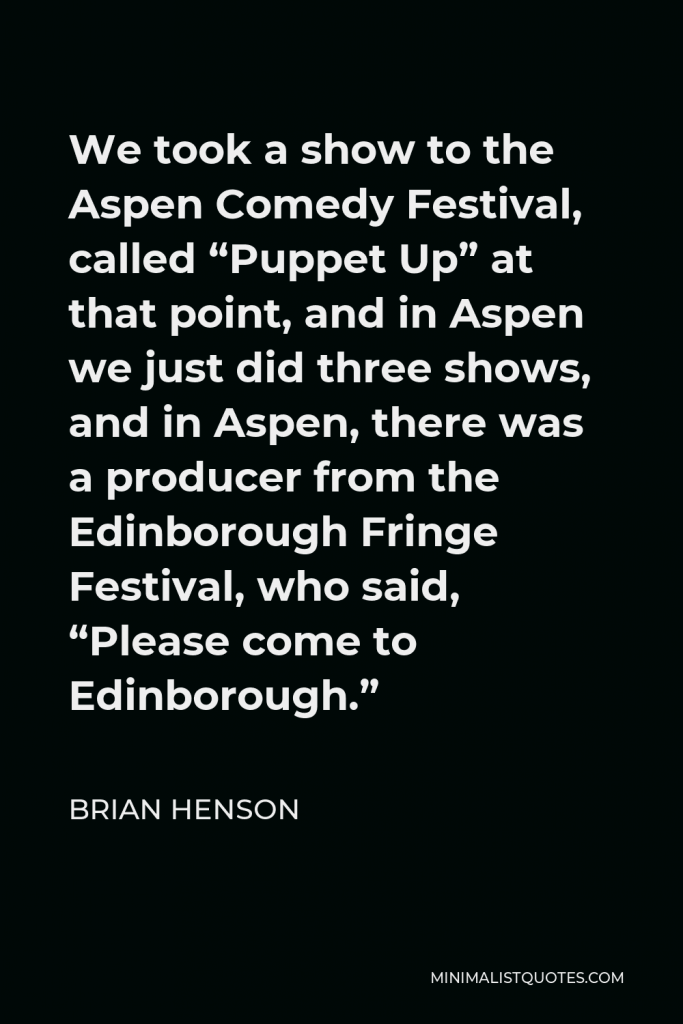

We took a show to the Aspen Comedy Festival, called “Puppet Up” at that point, and in Aspen we just did three shows, and in Aspen, there was a producer from the Edinborough Fringe Festival, who said, “Please come to Edinborough.”
BRIAN HENSON -





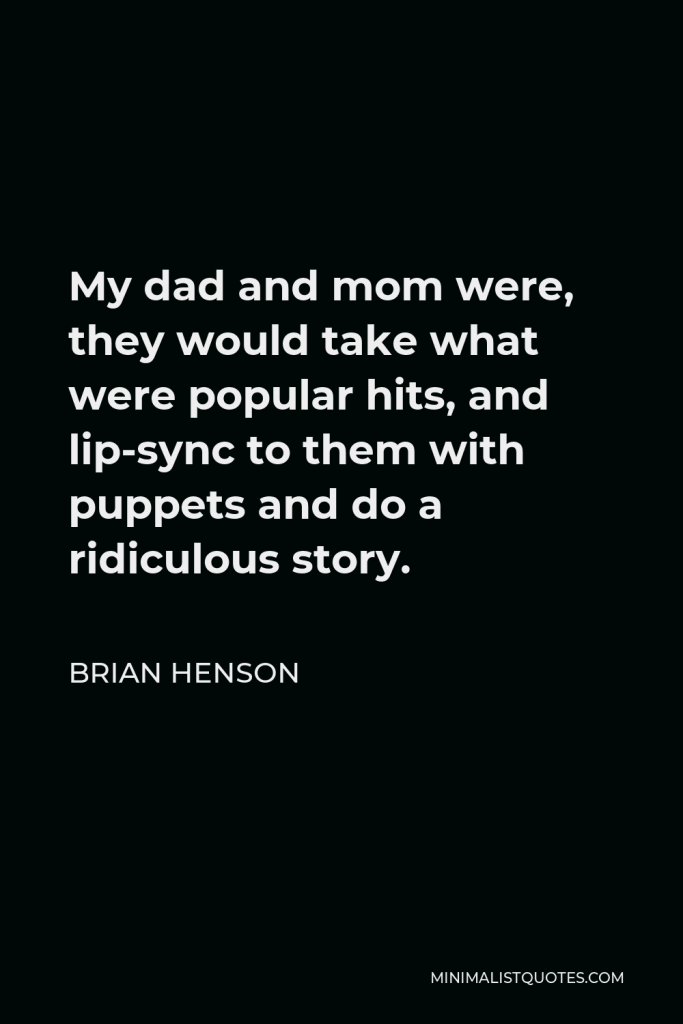

My dad and mom were, they would take what were popular hits, and lip-sync to them with puppets and do a ridiculous story.
BRIAN HENSON -





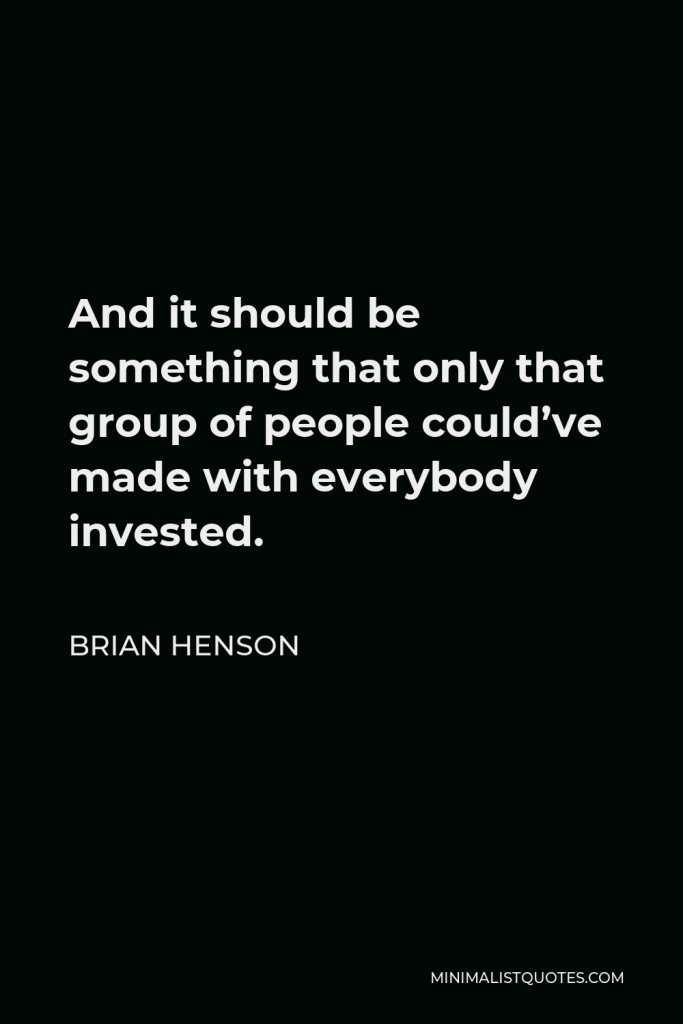

And it should be something that only that group of people could’ve made with everybody invested.
BRIAN HENSON -





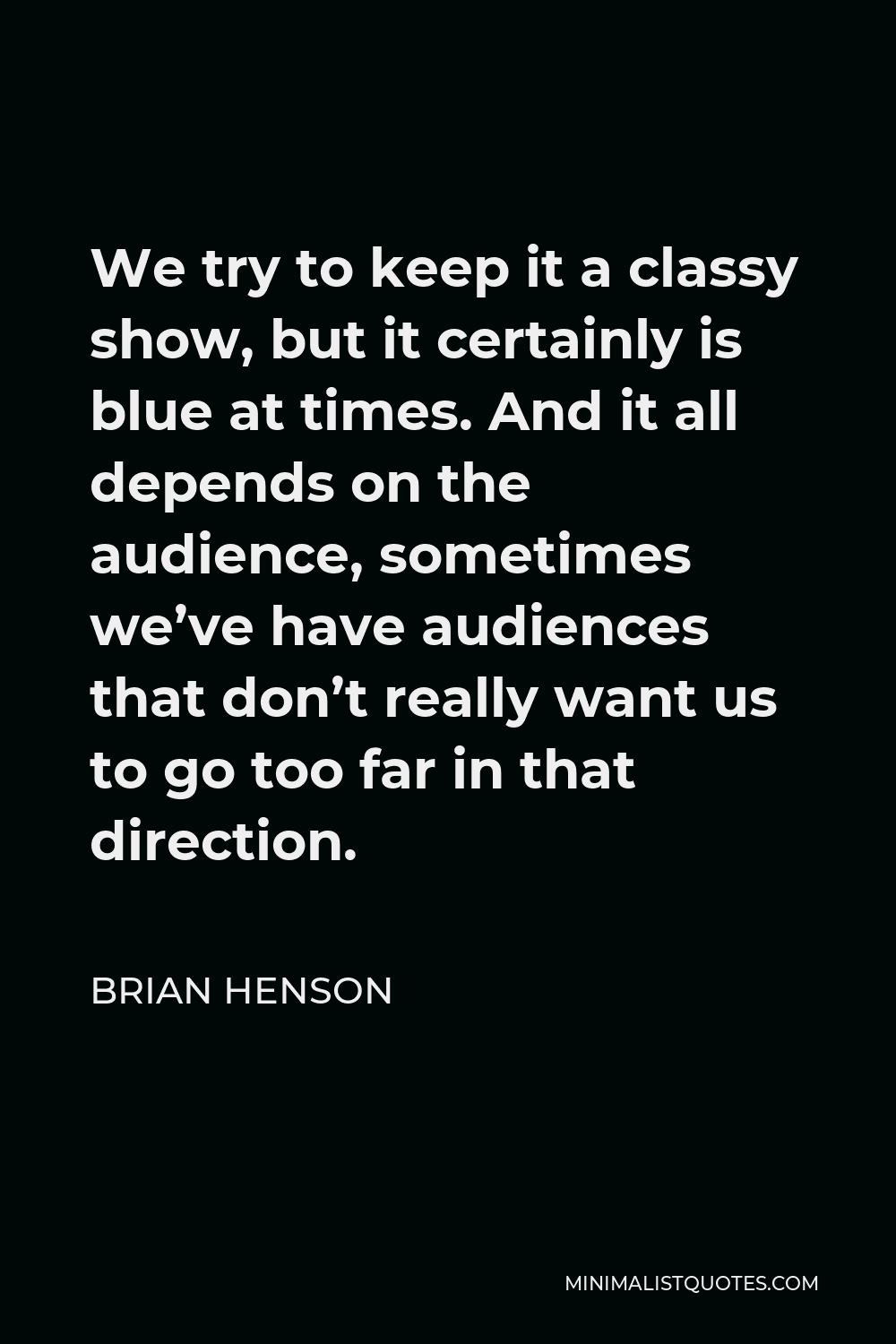
We try to keep it a classy show, but it certainly is blue at times. And it all depends on the audience, sometimes we’ve have audiences that don’t really want us to go too far in that direction.
BRIAN HENSON -





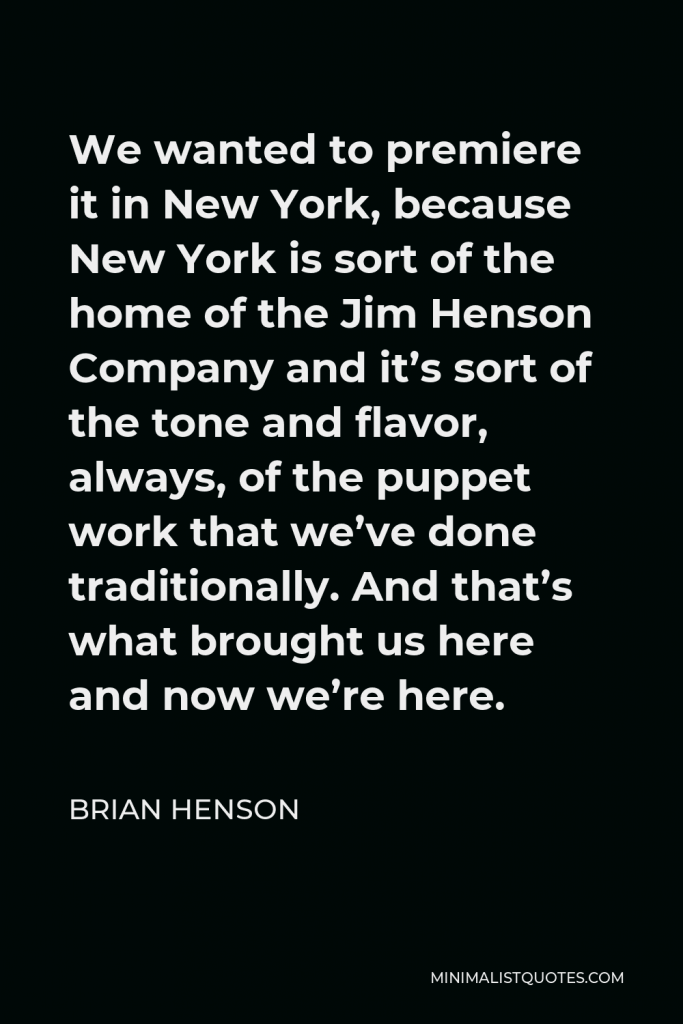

We wanted to premiere it in New York, because New York is sort of the home of the Jim Henson Company and it’s sort of the tone and flavor, always, of the puppet work that we’ve done traditionally. And that’s what brought us here and now we’re here.
BRIAN HENSON -





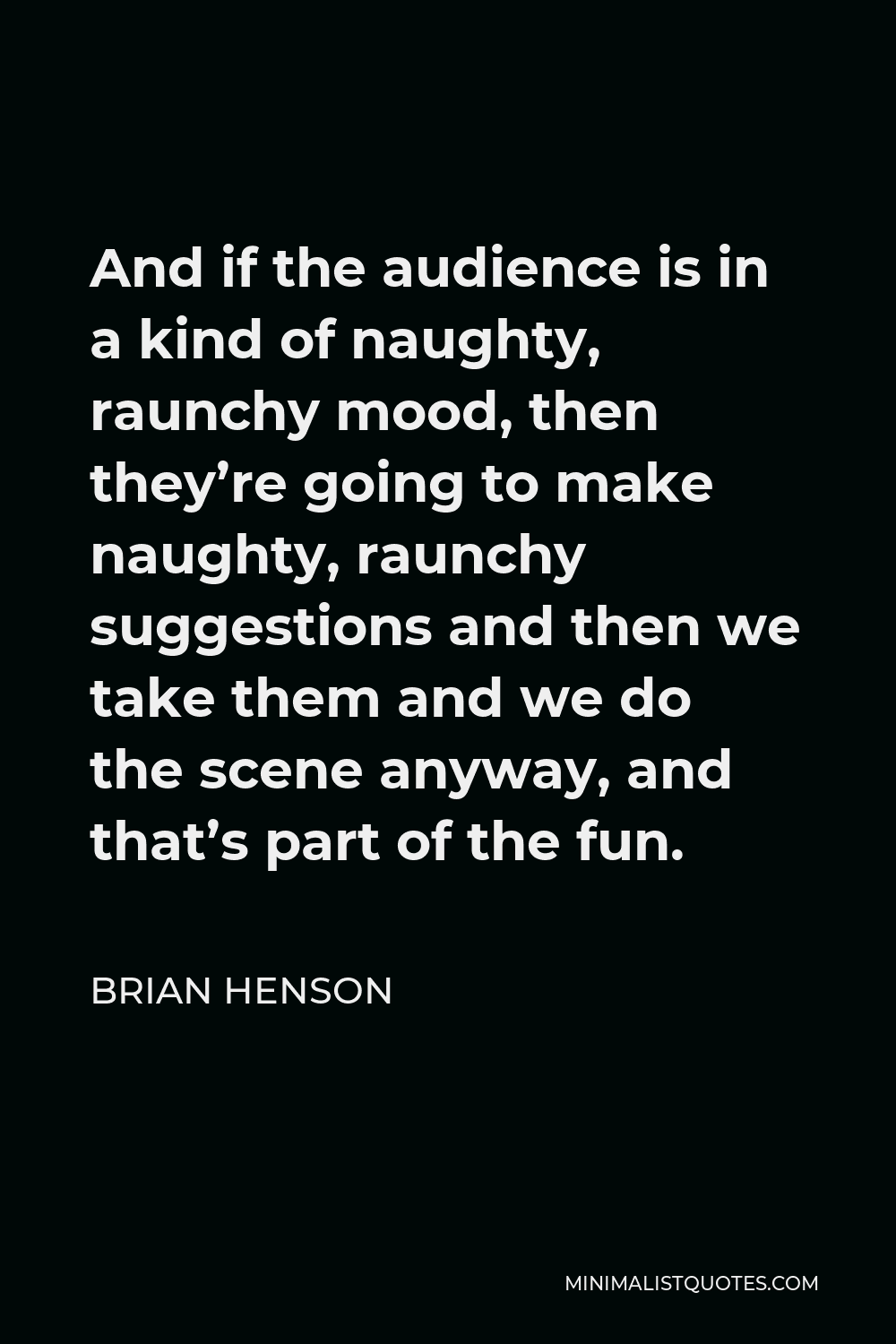
And if the audience is in a kind of naughty, raunchy mood, then they’re going to make naughty, raunchy suggestions and then we take them and we do the scene anyway, and that’s part of the fun.
BRIAN HENSON -





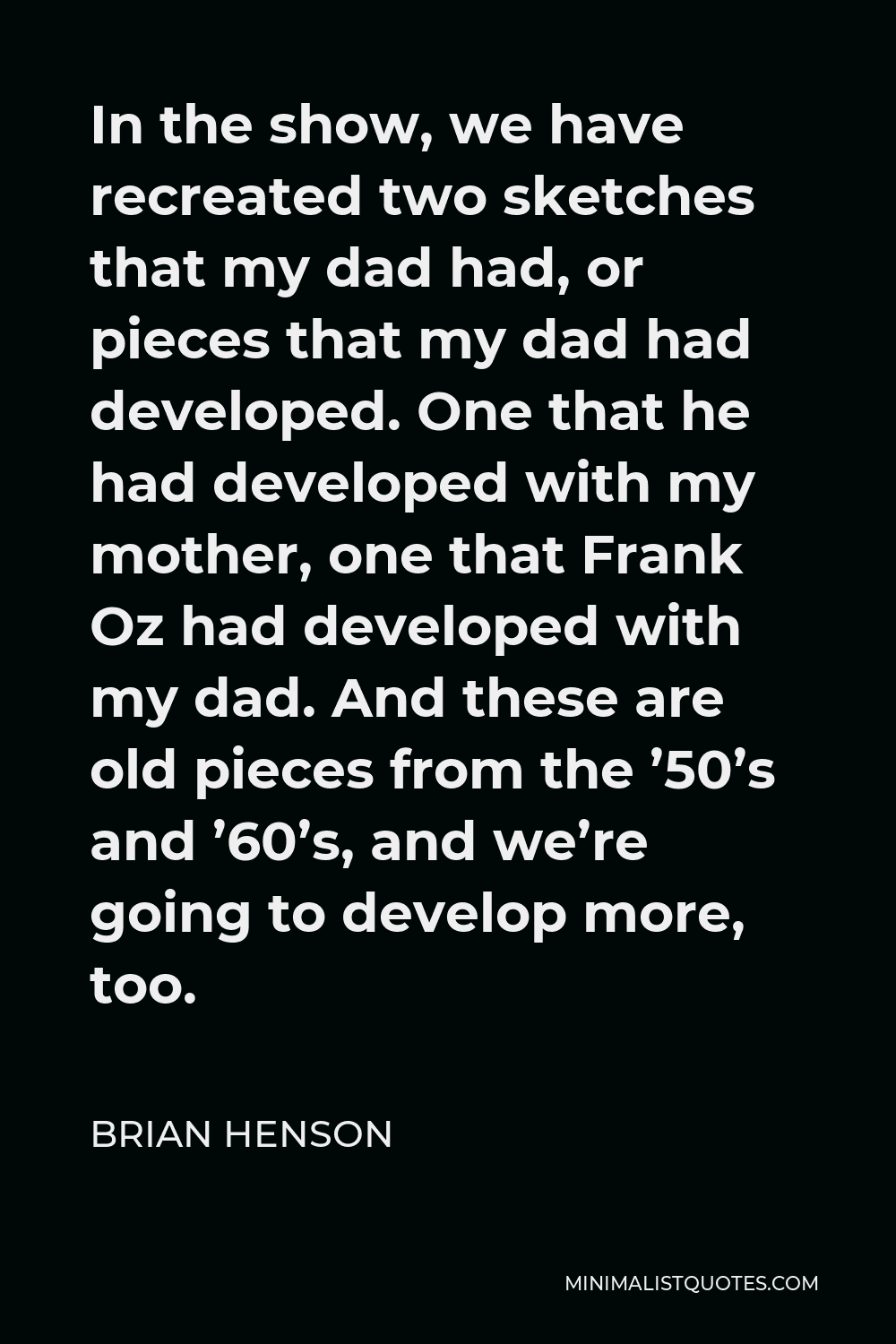
In the show, we have recreated two sketches that my dad had, or pieces that my dad had developed. One that he had developed with my mother, one that Frank Oz had developed with my dad. And these are old pieces from the ’50’s and ’60’s, and we’re going to develop more, too.
BRIAN HENSON -





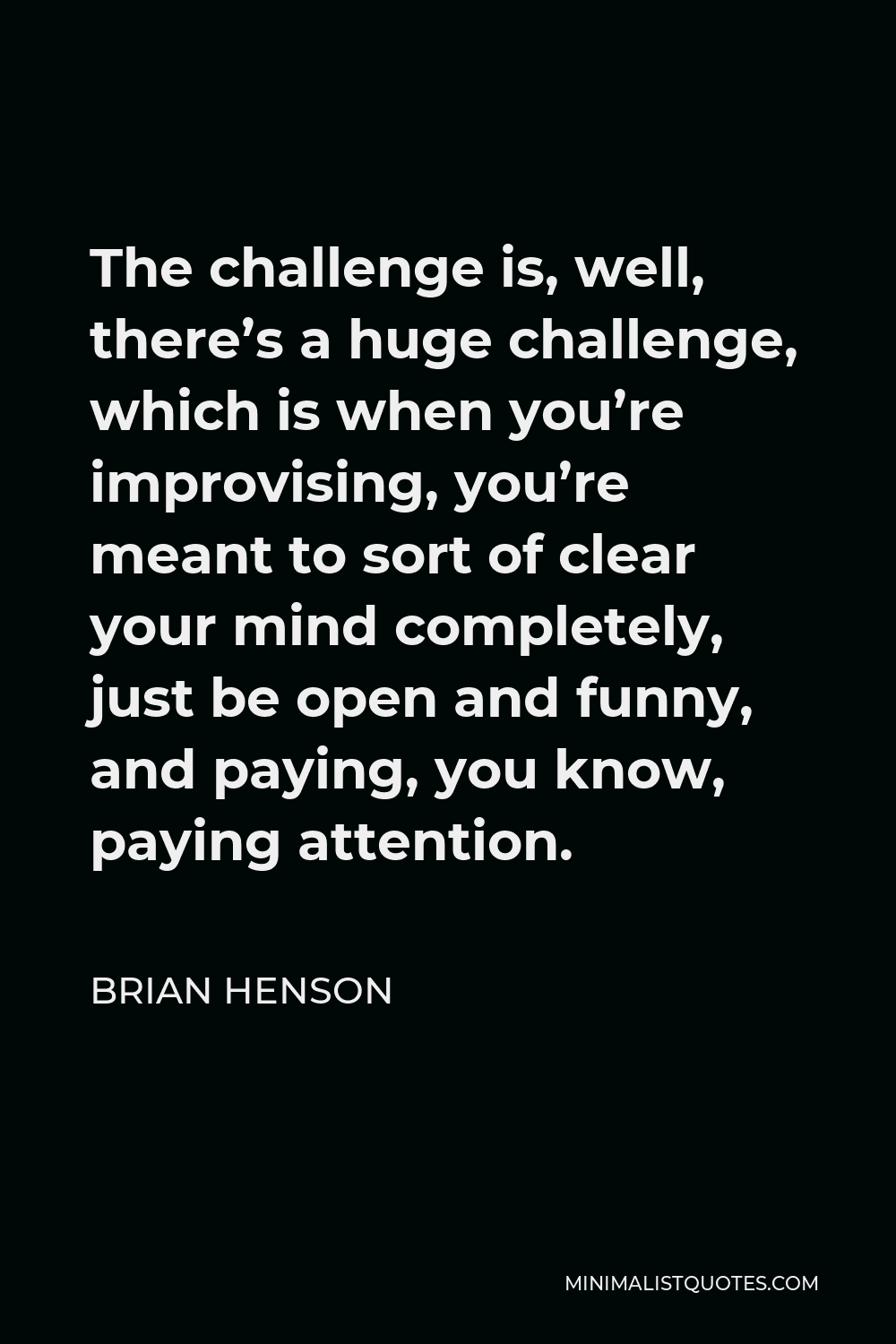
The challenge is, well, there’s a huge challenge, which is when you’re improvising, you’re meant to sort of clear your mind completely, just be open and funny, and paying, you know, paying attention.
BRIAN HENSON -





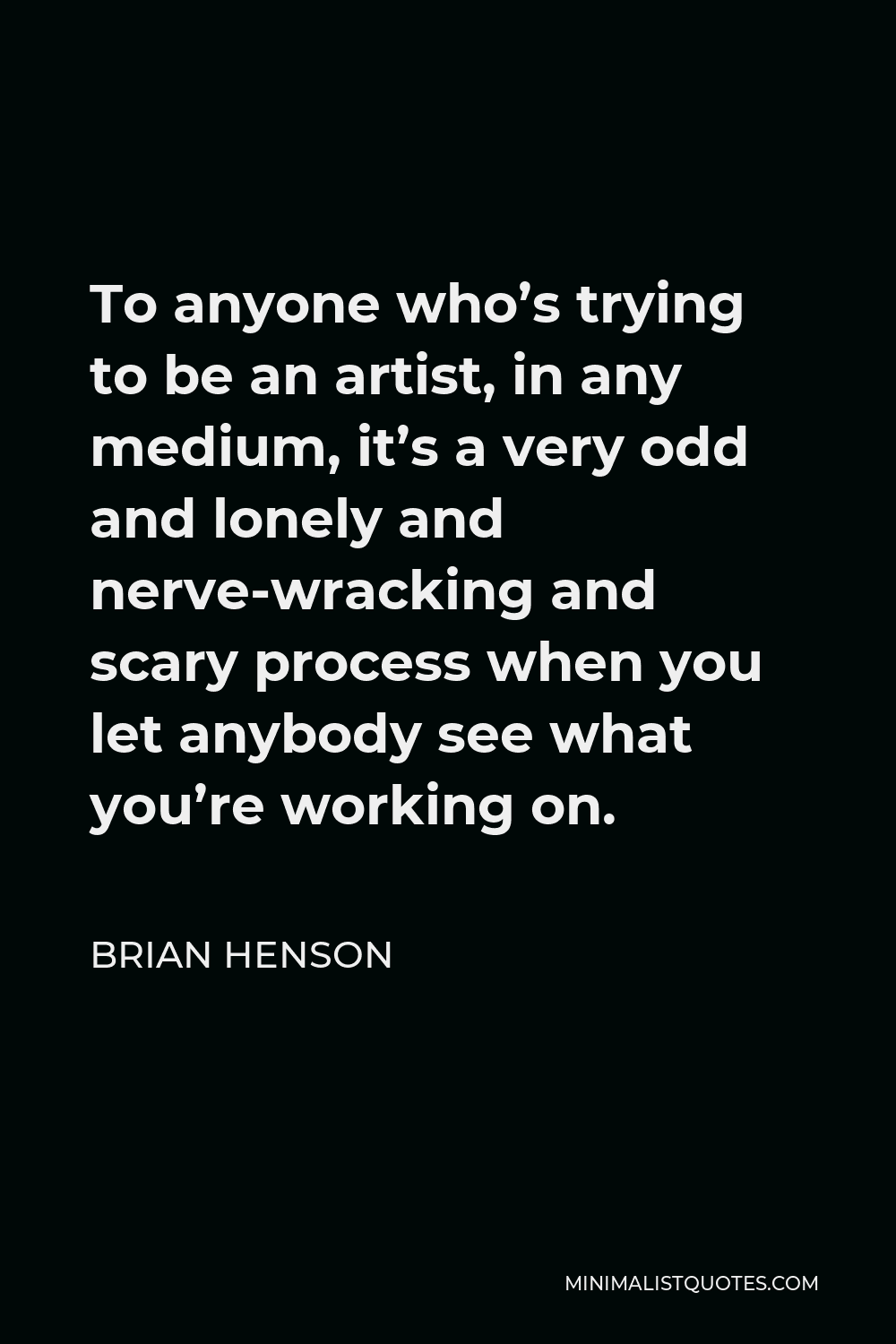
To anyone who’s trying to be an artist, in any medium, it’s a very odd and lonely and nerve-wracking and scary process when you let anybody see what you’re working on.
BRIAN HENSON -





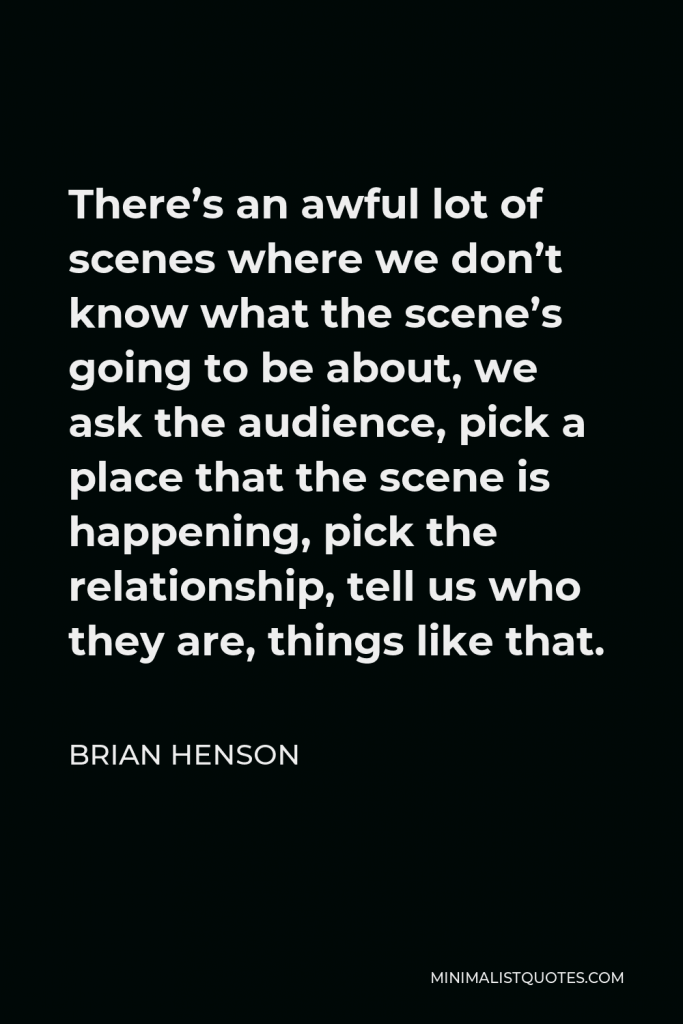

There’s an awful lot of scenes where we don’t know what the scene’s going to be about, we ask the audience, pick a place that the scene is happening, pick the relationship, tell us who they are, things like that.
BRIAN HENSON -





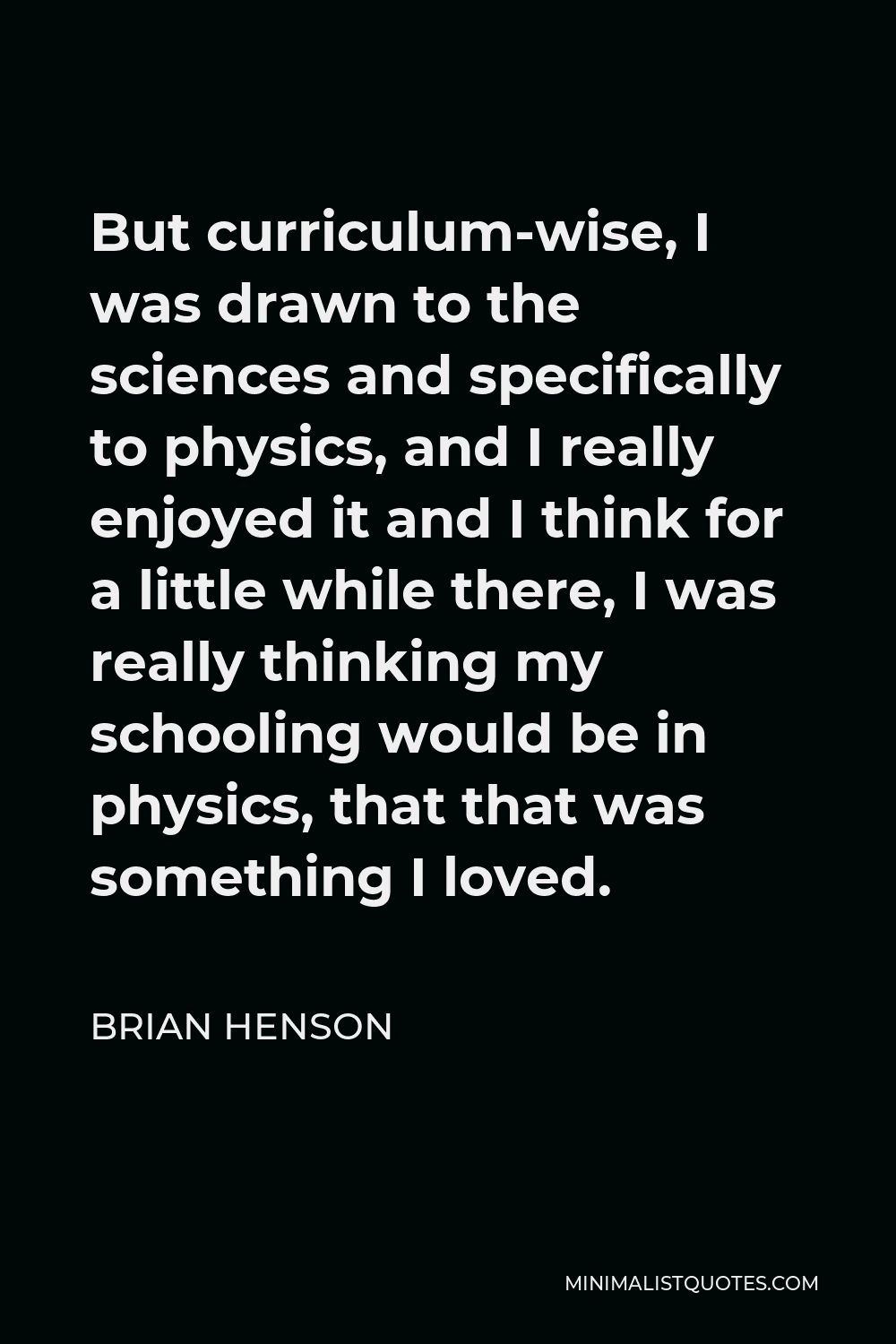
But curriculum-wise, I was drawn to the sciences and specifically to physics, and I really enjoyed it and I think for a little while there, I was really thinking my schooling would be in physics, that that was something I loved.
BRIAN HENSON
